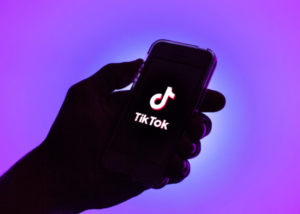We take a weekly look at mobile and tech stories from around the world. Headlines include… Apple and Meta Slammed with Fines as EU Targets Big Tech, Toshiba’s Quantum Leap: Hacker-Proof Messaging Could Secure Future Mobile Apps, Trump’s Tariffs Threaten $350B Digital Ad Market and much more… Alternatively listen On MEF Radio.

Apple and Meta Slammed with Fines as EU Targets Big Tech
Politico
Top story this week: The European Union took a hard swing at Big Tech, slapping Apple with a €500 million fine and Meta with €200 million under its new Digital Markets Act. Apple was targeted for App Store restrictions, while Meta got dinged for forcing users into personalized ads on Facebook and Instagram. Both tech giants plan to appeal—but Brussels warned: comply, or face even tougher penalties. The move ratcheted up tensions with Washington, with President Trump blasting the EU’s regulations as a direct hit on American innovation. More tech turbulence could be on the horizon.
Read more…

Toshiba’s Quantum Leap: Hacker-Proof Messaging Could Secure Future Mobile Apps
Tech Monitor
A leap toward hacker-proof messaging: Toshiba has successfully sent quantum-encrypted messages across a 250-kilometer commercial telecoms network in Germany. The breakthrough—using off-the-shelf fibre and no cryogenic gear—makes quantum security practical for real-world use. What’s the mobile angle? This tech could soon underpin ultra-secure communication for mobile apps and services, especially as data-rich platforms like banking and health go mobile-first. Toshiba’s Robert Woodward says it’s a crucial step toward national-scale, quantum-secure networks—and that means safer smartphones down the line.
Read More…

Trump’s Tariffs Threaten $350B Digital Ad Market
Wall Street Journal
The $350 billion U.S. digital ad market is bracing for impact as Trump’s tariffs spark early signs of a slowdown, according to the Wall Street Journal. Analysts say mobile ad platforms like Meta and Google, which dominate digital spend, are seeing cutbacks as sectors like e-commerce, auto, and fashion conserve cash.
Chinese mobile-first platforms like Temu and Shein are pulling ads amid 100%+ tariffs and the end of the $800 de minimis loophole, threatening billions in mobile ad revenue. With small businesses moving fastest to slash spend, the mobile ad ecosystem—usually a growth engine—is now showing signs of contraction.
Read more…

Nokia CEO Signals US Manufacturing Boost to Offset Tariff Hit
Reuters
Nokia’s new CEO, Justin Hotard, has signaled that the company may increase its US manufacturing to offset the impact of tariffs, which could cost Nokia up to €30 million in operating profits this quarter.
With 90% of US communications relying on Nokia’s tech, Hotard is eyeing potential expansions to ensure resilience and growth in the competitive US market.
Nokia currently operates five manufacturing facilities in the US, including semiconductor plants in California.
As Nokia navigates tariff challenges, its moves to boost local production could influence its position in the rapidly evolving mobile infrastructure ecosystem
Read more…

Ofcom Bans Global Titles in UK to Boost Mobile Security
Guardian
Ofcom has banned UK mobile operators from leasing Global Titles (GT) due to security risks.
Criminals could exploit GT to intercept calls and messages, including two-factor authentication codes, or track individuals.
While typically leased to legitimate businesses, the ban aims to prevent misuse.
New agreements are banned starting April 22, 2025, and existing leases must end by 2026.
Read more…

TikTok Sparks Electronic Music Boom, Outpaces Indie in 2024
Guardian
Views of TikTok posts using electronic music outpaced those with indie music for the first time in 2024.
Clips tagged #ElectronicMusic garnered over 13 billion views, a 45% increase from 2023, with growth surpassing that of indie and hip-hop genres.
The rise is driven by creators using electronic music in videos about sports, fitness, fashion, and travel.
TikTok has become a key platform for promoting electronic music, helping artists like Disclosure and Joel Corry achieve mainstream success.
British DJs like Hannah Laing and Billy Gillies have also gained significant followings through the app.
Read More…

DOJ Takes Aim at Google’s Search Monopoly, Eyes Chrome Sale
NPR
Among the top stories this week, the U.S. Justice Department is pressing a federal judge to force Google to sell its Chrome browser and end its default search agreements, in a bid to break up its monopoly in online search.
This follows a ruling last year that found Google’s practices illegal.
The DOJ argues these moves would open up the market to more competition, while Google says it could harm consumers and innovation.
The judge has scheduled three weeks of hearings to determine the next steps.
Read More…

Big Tech’s Earnings Climb Meets Trade War Jitters
Reuters
Also in tech news this week, SK Hynix warned of possible challenges later in 2025, citing U.S. tariffs despite reporting a 158% surge in quarterly profits, driven by strong demand for memory chips used in AI.
The company overtook Samsung as the top Dynamic Random Access Memory vendor and is expanding its factories, but future demand could weaken if tariffs impact global tech spending.
Meanwhile, Texas Instruments exceeded estimates with Q1 revenue up 11%, forecasting Q2 sales between $4.17 billion and $4.53 billion, boosted by industrial and automotive demand. TI is optimistic about a market recovery.
STMicroelectronics reported Q1 earnings in line with expectations but forecasts stronger Q2 revenue, anticipating a recovery in the second half of 2025, though the outlook excludes potential tariff impacts.
And IBM posted Q1 sales of $14.5 billion, up 1%, but cautioned that economic uncertainty and U.S. government cost cuts could affect business.
These projections come as AI, 5G, and IoT are poised to dominate discussions at MWC25 Shanghai, scheduled for June 18–20 at the Shanghai New International Expo Centre and Kerry Hotel Pudong, following the success of the event in Barcelona.
Read More…

Baidu Slashes AI Prices, Turbocharges the Race
Reuters
Baidu is shaking up the AI market, unveiling upgraded models and slashing prices in a bid to challenge rivals like Alibaba and DeepSeek.
The company introduced the Ernie 4.5 Turbo and Ernie X1 Turbo, promising faster, cheaper AI solutions for developers.
The 4.5 Turbo sees a whopping 80% price drop, while the X1 Turbo—Baidu’s answer to DeepSeek—is now half the price of its predecessor.
The company also launched Xinxiang, a new AI platform designed to automate tasks, putting pressure on competitors like Manus AI. The push is part of Baidu’s strategy to maintain its position in China’s increasingly competitive AI landscape. The game is on!
Read More…

Musk’s Million-Robot March Stalls on Tariff Trouble — Lex
FT
According to the Financial Times’ Lex column, Elon Musk may be bullish on deploying a million Optimus humanoid robots by 2030—but tariff troubles are jamming the gears.
Global robotics giants like ABB and Fanuc face weak demand and tangled supply chains, with key parts like actuators still reliant on China.
Even Musk admits sourcing magnets is a pain.
With robots slowed by geopolitics, the Lex team wryly notes this might be one case where tariffs actually preserve American jobs—at least until the bots catch up.
Read More…





